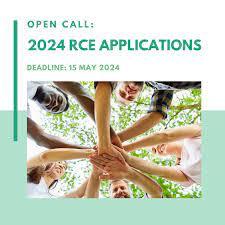
https://www.rcenetwork.org/portal/open-call-2024-rce-applications
Organisations that are interested in initiating the RCE process and applying to become an RCE are invited to submit a main application document along with the application summary by 15 May 2024 (12:00pm, noon JST) to UNU-IAS.
- Sample Application 1 - RCE Greater Portland
- Sample Application 2 - RCE Bordeaux Aquitaine
TO APPLY: Applications should be sent electronically to the Global RCE Service Centre at rceservicecentre@unu.edu
by 15 May 2024 (12:00pm, noon JST).
For resources on the benefits of being an RCE member please visit our resources centre here.
The Ubuntu Alliance, in its meeting in April 2006 in Yokohama, established the Committee of Peers for RCEs. This Committee and Regional Advisors review applications for new RCEs and provide recommendations to United Nations University during the RCE acknowledgement process. The United Nations University Institute for the Advanced Study of Sustainability (UNU-IAS) acts as the secretariat of the Ubuntu Alliance.
n 2002, the UN General Assembly adopted a resolution announcing the Decade of Education for Sustainable Development (UNDESD 2005-2014), based on the Johannesburg Plan of Implementation. The United Nations Scientific and Cultural Organization (UNESCO), the lead agency for the UNDESD, stressed the need to reorient existing education towards sustainability.
In 2003, in response to the UN resolution on the UNDESD, the United Nations University Institute for the Advanced Study of Sustainability (UNU-IAS) launched the ESD project, with funding support from the Ministry of the Environment, Japan. The ESD project designs and implements research and development activities through two flagship initiatives: a global multi-stakeholder network of Regional Centres of Expertise on ESD (RCEs) and a network of higher education institutions called the Promotion of Sustainability in Postgraduate Education and Research Network (ProSPER.Net).
Moving forward, UNESCO has now presented the ESD for 2030 Roadmap with its five priority areas of action: advancing policy, transforming learning environments, building capacities of educators, empowering and mobilizing youth, and accelerating local level actions. At all levels of society, RCEs play a crucial role in implementing these goals using their local knowledge and global network.
As of August 2023, 190 RCEs have officially been acknowledged by the United Nations University worldwide. The Global RCE Service Centre is headquartered at UNU-IAS, where it provides assistance to individual RCEs and facilitates their communication and networking.
RCE Vision
RCEs aspire to translate global objectives into the context of the local communities in which they operate. Upon the completion of the DESD in 2014, RCEs are committed to further generating, accelerating and mainstreaming ESD by implementing the ESD for 2030 Roadmap, and contributing to the realization of the Sustainable Development Goals (SDGs).
RCE Mission









